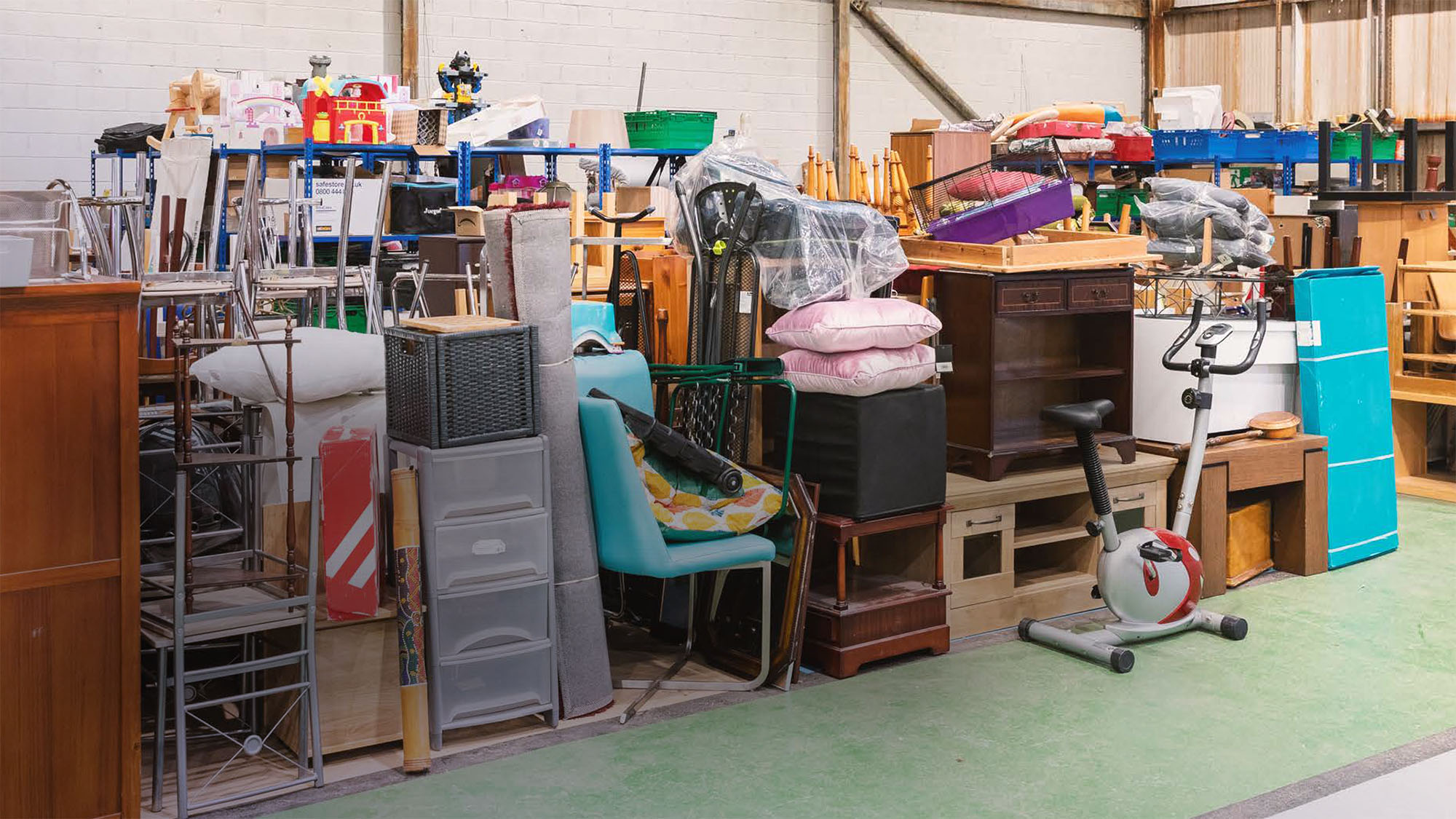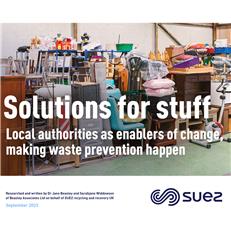Solutions for Stuff: New SUEZ report highlights important role of local authorities at the forefront of waste prevention activities in their communities
Local authorities are powerful changemakers, but they face significant financial and resource challenges. To build on the 2022 ‘Stuff of Life’ report, which addressed the challenges we face in relation to consumerism, SUEZ commissioned a new report conducted by Beasley Associates and Intelisos, to support local authorities in their decision making around waste prevention. This guide is the result and is designed for local authorities to use on their journey to a more circular economy in their local areas.
To achieve a truly circular economy, significant steps need to be made towards decarbonisation that go beyond recycling, with effective behavioural change programmes, focused on educating and empowering consumers, businesses, and wider society to reduce the waste they create and potentially to change what they buy. At a time when the environmental imperative and the desire to act have never been clearer, but with the lack of Government policy, the report encourages local authorities to empower others and lead action in their local communities to cut waste and also to look inwardly and shine a spotlight on areas of their own activities. Reaching out to other teams within an authority, for example, teams that work across health and wellbeing, has the potential to find circular practices already in action which could be replicated, but not viewed through the lens of resource efficiency and to find new opportunities to use less, reuse more and cut waste.
The report showcases examples from local communities, providing references and case studies of activities that can have a direct impact on consumption, waste generation and resource use.
Key recommendations in the report include:
- Get the basics right – with any new activity or intervention, it’s important to get the basics right. Waste, recycling and re-use services should be available and accessible to all and functioning well if you want householders and businesses to use them, for example, food waste interventions or implementing re-use shops on sites.
- Make it easy – it’s important you make your intervention easy to understand and participate in. Consider focusing on one action at a time. Think about what you’re already doing well and build on this to amplify your impact.
- Understand your internal priorities – being clear on what interventions would align with organisational priorities is key. For example, if priorities are community and health based, surplus food redistribution and reusable period products could be a focus.
- Work collaboratively – building good relations with residents, businesses, community groups and other stakeholders will ease implementation.
The report includes a reference table to ease the load when researching waste prevention activities – this indicates the target audience and material streams for different interventions, their relative impact and ease of delivery, and their potential to create supplementary benefits beyond their immediate scope.
Commenting on the report, John Scanlon, CEO at SUEZ recycling and recovery UK, said: “We’re delighted to be launching Solutions for Stuff, our waste prevention guide to support local authorities in their transition to developing a more circular, resource efficient approach in their organisation and wider local community. This report outlines the key opportunities for local authorities to engage with their departments internally and to work collaboratively with businesses and their communities, to use less and cut waste, with activities that benefit all areas of a triple bottom line – communities, the environment and the economy.
"The various case studies in the report are testament to the drive and ambition of local government in responding to the need to address our resource use and consumer behaviour. This is an opportunity for local authorities to be the changemakers in our society, and we hope this report provides guidance on how we can all make better decisions to contribute to the UK’s net zero target and lead the circular economy.”

